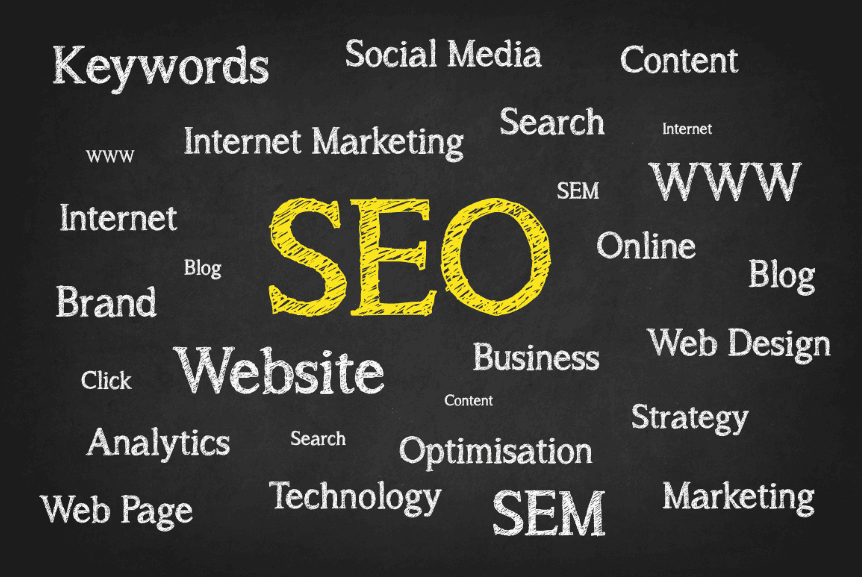In developing your online and offline marketing strategies, you first have to get your company’s SEO and branding down to a tee. That’s because branding defines your company’s identity and tells the story of what your company is all about.
Table of Contents
In marketing, the brand is the template, providing a definite guide on where all other marketing decisions are based, including your search engine optimization or SEO strategies.
Essentially, these two marketing concepts— SEO and branding —go hand in hand, especially when it comes to establishing visibility and customer engagement. They can shape a company’s success and become instrumental in its growth.
In this article, you’ll have a better idea of how branding affects a website’s SEO performance and ranking.
Defining SEO and Branding
While a lot of people think about branding in terms of company logos, color schemes, and taglines, the fact is that the true meaning of branding goes a lot deeper. In fact, it encompasses the core identity of a business.

Some marketing experts define branding as the emotional connection that customers form with a company. Their perception or feeling about a company’s brand is often shaped by the company’s values and mission.
Moreover, the customer experiences that the company provides leave a solid impression on the customer, further reinforcing their perception. A well-defined brand identity resonates with customers, fosters loyalty, and differentiates a company from its competitors.
Hence, branding is the story that your company tells through consistent messaging, imagery, and customer interactions across all platforms. On the other side of the digital coin is SEO, a powerhouse strategy that governs how websites are discovered by users through search engines.
SEO involves a complex web of factors, including high-quality content creation, user-friendly website design, authoritative backlinks, and technical optimization. These elements collectively determine where your website ranks on search engine results pages (SERPs) and, consequently, how much organic traffic it attracts.
Crafting SEO and Branding Strategy
An effective online branding strategy starts with a user-centric website design that not only looks appealing but also offers a seamless experience. User-friendliness is key, as it not only improves the user experience but also aligns with search engines’ preference for sites that provide value to visitors.
Additionally, social media platforms play a pivotal role in shaping brand identity and engaging with the audience. Consistent messaging across various digital channels reinforces your brand’s voice and fosters authenticity.
Offline Efforts and Brand Consistency
While the digital realm is one of the most cost-effective and popular marketing channels, you shouldn’t discount the role of traditional marketing methods in building up your business reputation. When using print media, send out a press release introducing your newest service or products to your target audience.
Moreover, give out merchandise such as a branded lanyard, branded office supplies, or other custom items with your company logo and tagline to existing customers and potential clients for brand awareness.
Essentially, you need to ensure that your offline branding efforts complement your online marketing strategies, creating a unified brand experience for your audience.

SEO and Branding
The relationship between branding and SEO is symbiotic. A well-established brand can directly impact your SEO performance. Here are just some of the ways:
Increased Brand Searches
When customers recognize and trust your brand, they are more likely to search for it by name. This influx of branded searches sends positive signals to search engines, potentially leading to improved rankings for those terms.
Moreover, the familiarity of your brand can lead to higher click-through rates (CTR) for your search listings, which is yet another factor considered by search engines when determining rankings.
Authority Boost
Quality backlinks from authoritative sources are a cornerstone of SEO success. Here’s where branding comes into play. Recognizable and trusted brands naturally attract backlinks from reputable websites, as others are more likely to cite and link to your content. Additionally, even unlinked brand mentions contribute to your online reputation, enhancing your overall authority in your industry.
Enhanced Social Signals and Brand Influence
Social media SEO and branding are closely intertwined. A strong brand identity translates into a more engaged and loyal social media following. While the direct impact of social signals on SEO is debated, there’s no doubt that a vibrant social presence can indirectly enhance your SEO performance by amplifying brand visibility and content sharing. Moreover, social media influencers can expose your brand to a wider audience, potentially leading to more backlinks and mentions.
Elevated Trustworthiness
Google’s E-E-A-T principle (Experience, Expertise, Authoritativeness, Trustworthiness) is a crucial ranking factor, particularly for content related to health, finance, and other sensitive areas. A well-established brand that embodies these traits can positively influence your E-E-A-T signals, enhancing your online credibility and indirectly improving your search rankings.
Branding as an SEO Pillar
Branding isn’t a temporary strategy; it’s a long-term investment in your business’s future. With a strong brand identity, you can lay a foundation for sustained growth.
In fact, your branding efforts combined with effective SEO strategies can lead to a cumulative effect on your organic search rankings. As customers increasingly search for your brand, engage with your content, and link to your resources, your online visibility and reputation can flourish over time.
While there’s a need to focus on both SEO and branding, establishing the company’s story really comes first. What follows is a combined strategy where a strong brand enhances your SEO results, while effective SEO bolsters your branding efforts.
Eventually, these two concepts intertwine to create a holistic approach that drives organic traffic and fosters customer connections. In no time, these marketing strategies will be rewarded with growth in revenue and customer loyalty.



